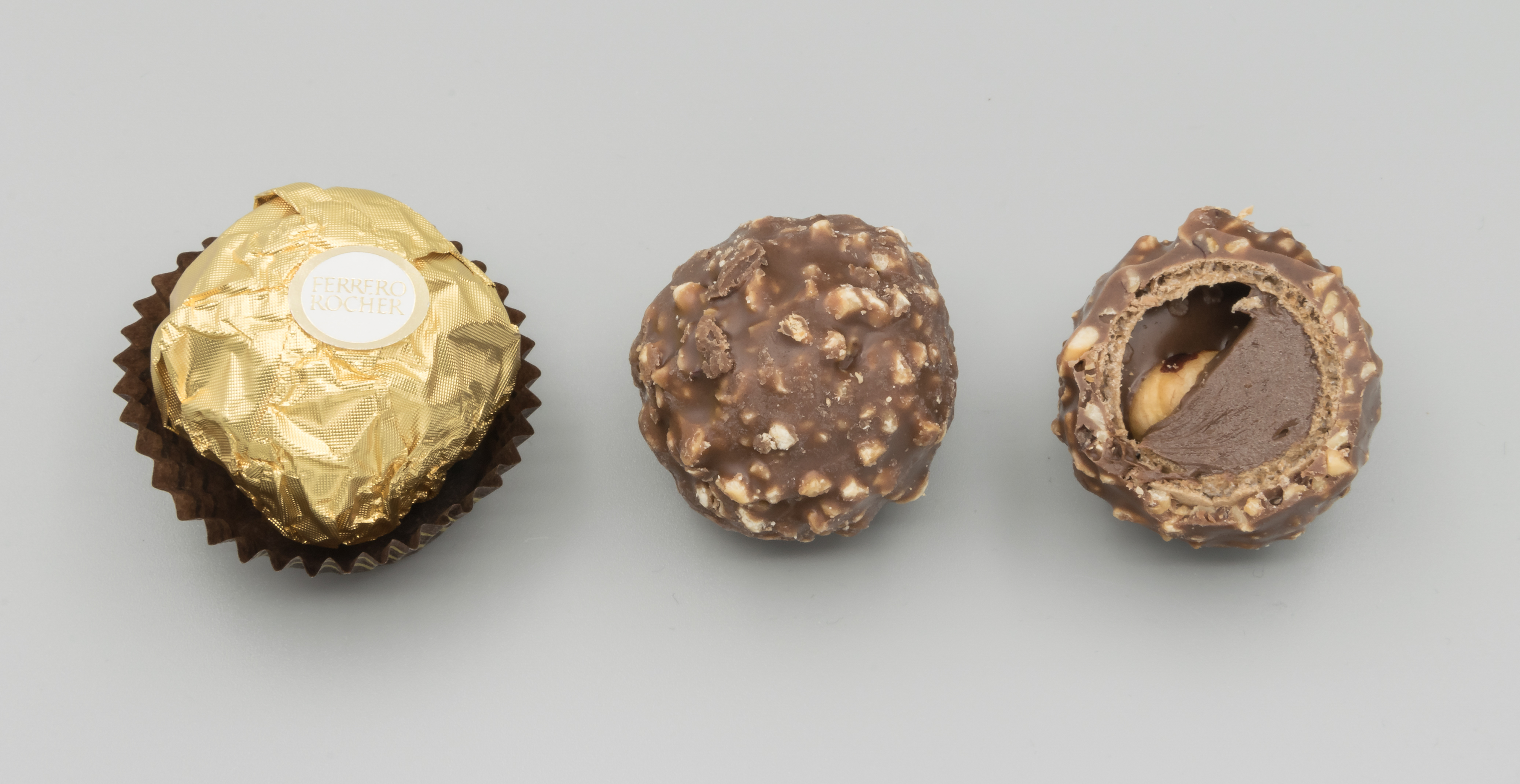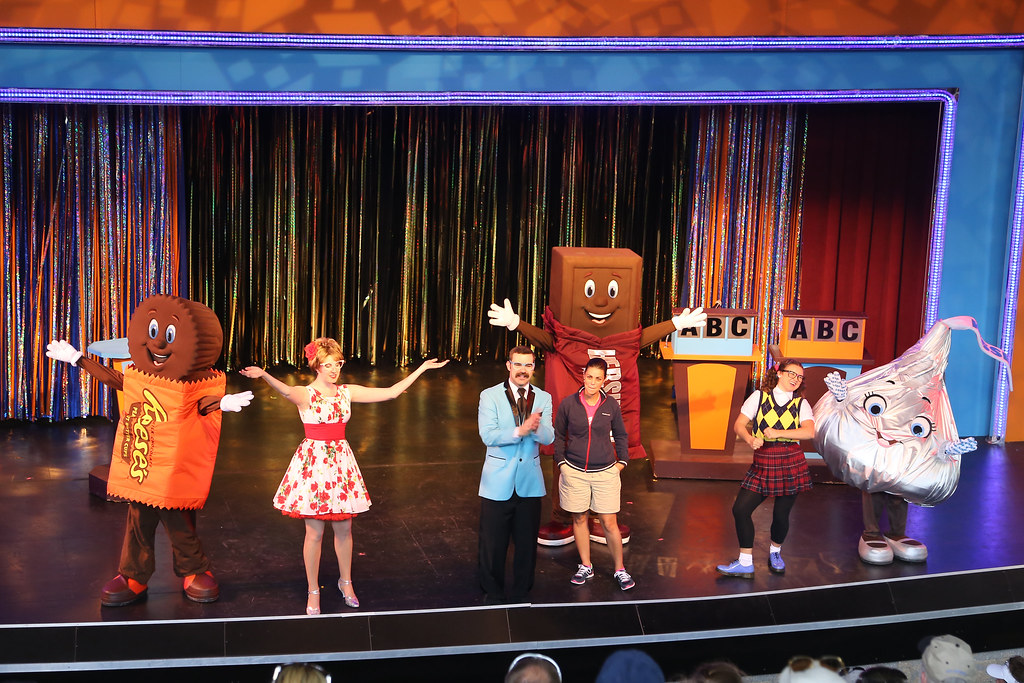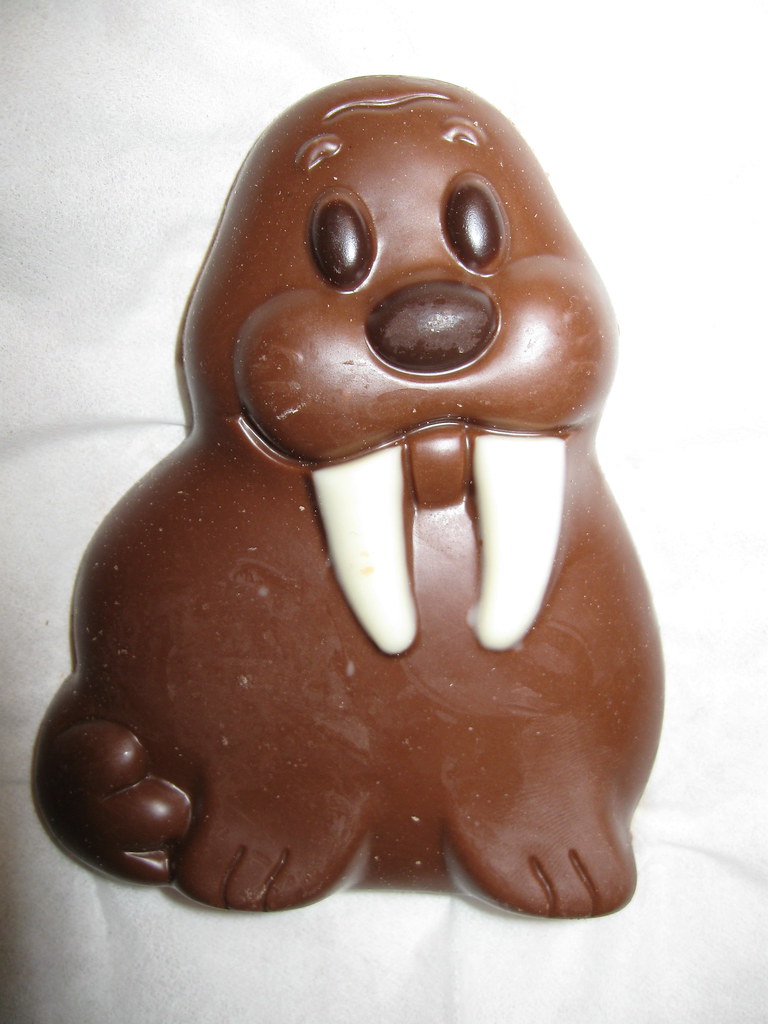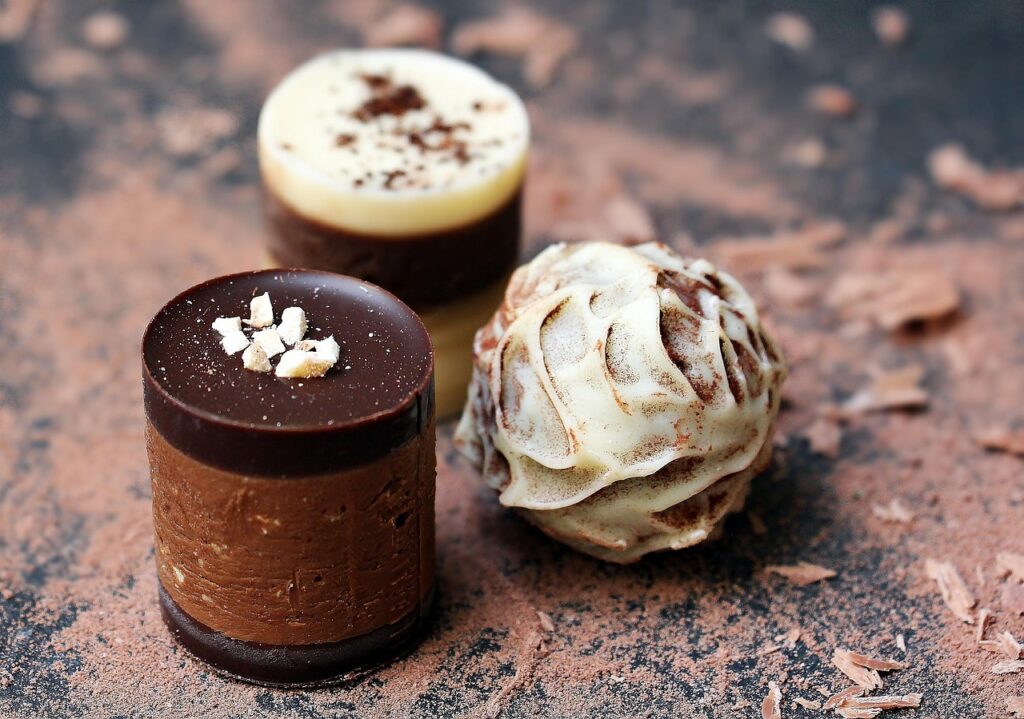Chocolate. For many, it’s a small, daily indulgence, a moment of pure bliss that transports us away from the mundane. We associate it with luxury, comfort, and a certain standard of quality, especially when we opt for brands that market themselves as ‘premium.’ But what if that delightful wrapper hides a bitter truth, one where quality takes a backseat to profit, and ethical sourcing is merely a whispered promise?
In an age where consumers are more conscious than ever about what they eat and where it comes from, the notion of a ‘premium’ label should imply superior ingredients, responsible practices, and a taste that justifies the higher price tag. Unfortunately, a growing chorus of consumers and investigative reports are revealing that some of the most famous names in chocolate are failing to meet these fundamental expectations. They’re accused of using cheap fillers, unhealthy preservatives, and, most disturbingly, exploiting vulnerable communities at the source of their cocoa.
This in-depth look will pull back the curtain on eight chocolate brands that have faced significant criticism, exposing why many consumers are saying they are no better than, and in some cases, worse than, your average drugstore bar. We’ll delve into the specifics of their ingredient choices, the serious ethical dilemmas surrounding their cocoa supply chains, and the disturbing presence of heavy metals that pose real health risks, ultimately empowering you to make more informed choices for your next chocolate fix.

1. **Lindt**Lindt stands as one of the most recognized and celebrated chocolate brands globally, synonymous with Swiss precision and a perceived standard of luxury. Founded in Switzerland in 1845, the company originally specialized in dark chocolate, building a reputation that its marketing continues to leverage to this day. This carefully cultivated image, however, appears to be increasingly at odds with the reality of its product formulations and sourcing practices, leading many discerning chocolate lovers to question its ‘premium’ status.
When you examine the ingredients list of a Lindt chocolate bar, a stark truth often emerges: sugar is frequently listed as the very first ingredient. For true connoisseurs, this is a red flag. High-quality chocolate prioritizes cocoa content, allowing the complex notes of the bean to shine through. When sugar dominates, the chocolate becomes, as some critics bluntly put it, ‘just an overpriced sugar,’ masking the nuanced flavors that true premium chocolate should deliver and making the luxurious branding feel less authentic.
Beyond ingredient composition, Lindt faces serious ethical questions regarding its cocoa procurement. Investigations have linked the company to illegal farms operating in critical cocoa-producing regions like the Ivory Coast and Ghana. Such associations raise profound concerns about environmental destruction and the exploitation of labor, often involving child and slave labor, which undermines any claim of ethical sourcing that a premium brand should uphold. Consumers are increasingly demanding transparency and accountability, and these alleged links present a significant hurdle for Lindt’s reputation.
Adding to these concerns, Lindt’s dark chocolate products have been scrutinized for their heavy metal content. Not long ago, studies indicated that some of Lindt’s dark chocolate varieties showed ‘higher amounts of lead and cadmium than was permitted in the USA.’ These findings are particularly alarming given the known health risks associated with lead and cadmium exposure, especially for vulnerable populations. This contamination further erodes consumer trust, pushing the brand away from its premium perception and closer to the category of brands to approach with caution.
The confluence of these issues—a reliance on sugar over cocoa, documented links to unethical sourcing, and alarming levels of heavy metals—casts a long shadow over Lindt’s once-unquestioned prestige. For a brand that trades on an image of sophistication and quality, these revelations are a bitter pill, prompting consumers to seriously reconsider whether the indulgence is truly worth the potential hidden costs, both ethical and health-related.

2. **Ferrero**Ferrero, an Italian powerhouse founded by Pietro Ferrero, holds the impressive title of the second-largest chocolate producer globally and is undoubtedly one of the most beloved names in the confectionery world. Its vast empire includes 18 factories and employs over 40,000 individuals, famously churning out approximately 370,000 tons of Nutella each year. The sheer scale of its operations and the affection it garners worldwide might lead one to believe in its unwavering quality and integrity.
However, despite its monumental production volumes and widespread appeal, Ferrero grapples with significant challenges concerning the quality of its ingredients, particularly in some of its iconic products. A striking example is the renowned Butterfinger coating, which, surprisingly, is often ‘not considered chocolate due to its poor cocoa content.’ This distinction is critical for consumers who expect genuine chocolate in their ‘chocolate’ confections, and it highlights a disparity between product perception and actual composition.
The company’s ethical record also raises red flags. Ferrero received a ‘D from Green America,’ a concerning grade that reflects substantial issues within its supply chain. The organization specifically pointed to the company’s ‘efforts to combat child and slave labor didn’t make any substantial progress.’ This assessment indicates a systemic problem where, despite public commitments or initiatives, the fundamental issues of human rights abuses in cocoa sourcing persist, casting a dark cloud over the brand’s ethical standing.
Consumers, increasingly seeking out brands that align with their values, find these revelations difficult to reconcile with Ferrero’s family-friendly image. The knowledge that a widely consumed product might contribute to or fail to adequately address child and slave labor in its supply chain forces a re-evaluation of its perceived value. This ethical shortfall, coupled with questions about ingredient authenticity in key products, suggests that Ferrero’s ‘premium’ allure is more about brand recognition and less about a consistent commitment to quality and ethical practices.
Read more about: Beyond the Legends: 14 Iconic ’60s Music Groups Who Burned Bright and Faded Fast

3. **Godiva**Godiva, a name long synonymous with luxury Belgian chocolate, has seen a tumultuous period, highlighting the vulnerabilities even established premium brands face when quality and ethics are questioned. Though still boasting around 650 stores worldwide, the company, now owned by Turkey’s Yıldız Holding, notably closed ‘more than 120 stores in North America’ due to the pandemic and ‘declining sales.’ This suggests a shift in consumer perception and purchasing habits, perhaps a reflection of deeper issues beneath its gilded facade.
The brand’s sourcing practices present a particularly grim picture. Investigations have uncovered that ‘Godiva sources cocoa from illegal farms.’ What makes this revelation even more disturbing is the grim reality that these farms ‘use children and slaves, contributing a lot to environmental destruction.’ This direct link to severe human rights abuses and ecological harm starkly contradicts any claim of premium quality or ethical responsibility, severely damaging the brand’s credibility in the eyes of conscious consumers.
Further compounding its ethical woes, Godiva has been criticized for its lack of transparency and accountability in labor practices. The company ‘lacks labor certifications’ and, as a consequence, ‘earned an F grade from Green America in 2020.’ This failing grade from a reputable organization underscores a significant absence of verifiable efforts to ensure fair labor conditions and sustainable sourcing, making it challenging for consumers to trust the brand’s supply chain integrity.
Moreover, a study revealed a concerning contaminant: ‘most of the chocolate was contaminated with nickel.’ While the health implications of nickel in chocolate might not be as widely publicized as lead or cadmium, its presence in significant amounts adds another layer of concern for consumer safety and product purity. The combination of unethical sourcing, lack of certification, and chemical contamination paints a picture far removed from the pristine, luxurious image Godiva strives to project, cementing its place on a list of brands that fail to live up to their premium promises.
Read more about: The Ultimate Stocking Stuffer Guide Perfect Picks for Everyone from Coffee Lovers to Kids

4. **Mondelez**Mondelez International, Inc. might not be a household name itself, but its portfolio of brands is undeniably ubiquitous, reaching consumers in ‘more than 160 countries.’ As one of the largest companies by revenue in the United States, Mondelez is a colossal player in the global snack and confectionery market, owning beloved brands such as ‘Oreo, Sour Patch Kids, Toblerone, Halls, Cadbury, Chips Ahoy!, and many more.’ Its widespread presence, however, comes with a heavy ethical cost.
Like several other giants in the chocolate industry, Mondelez has been embroiled in significant controversies over its knowing support and participation in exploitative labor practices. The company ‘has huge problems in knowingly supporting and participating in child labor and slave labor.’ This is not merely an accusation but a pattern of behavior that has been documented and challenged by various investigations and legal actions, suggesting a deep-seated issue within its operational framework.
Concrete evidence of these practices emerged in 2017 when Mondelez was ‘included in a serious investigation that found that a big part of the cocoa used by Mondeles is known illegally in national parks in Africa.’ The illegal cultivation within national parks not only points to severe environmental damage but also highlights the unregulated and often brutal conditions under which this cocoa is likely harvested, far from any ethical oversight or labor protections. This demonstrates a disregard for both planetary well-being and human dignity.
The severity of Mondelez’s alleged involvement in child exploitation was brought to the forefront again in 2021, when the company ‘was included in a lawsuit’ accusing it of ‘knowingly profiting from the child slave suffering.’ Shocking details from the lawsuit described instances, for example, on ‘the company’s farms dedicated to Cadbury,’ where ‘a lot of children under 10 were found working in extremely dangerous conditions.’ These harrowing accounts underscore the stark contrast between the joyful image of its brands and the harsh reality of its supply chain, urging consumers to question the true cost of their favorite snacks.
Further reinforcing these claims, a 2022 Channel 4 Dispatches investigation vividly illustrated the problem, finding ’10-year-old children were using machetes to harvest cocoa for chocolate supergiant Mondelēz’s supply chain.’ The report included testimony from ‘one father from Ghana [who] said he “has to use his children” to help with the harvest in an effort to produce more bags of cocoa, including his 10-year-old daughter.’ This direct evidence makes it undeniable that for Mondelez, the pursuit of profit has, in many cases, come at the devastating expense of childhood and basic human rights, making its ‘premium’ brands a bitter experience for those who understand their true origin.
Product on Amazon: Lindt EXCELLENCE 85% Cocoa Dark Chocolate Candy Bar, Halloween Candy, 3.5 oz. Bar (12 Pack)
Brand: Lindt
Binding: Grocery Product Group: Grocery
Price: 53.28 USD
Rating: 4.6 Total reviews: 12498
Item Form: Bar
Occasion: Mother’s Day
Chocolate Type: Dark
Flavor: 85% Cocoa
Features:
1. Twelve (12) 3.5 oz. Bar of Lindt EXCELLENCE 85% Cocoa Dark Chocolate Bar
2. Well-balanced, robust cocoa notes and an exceptionally silky feel in a classic dark chocolate candy bar
3. Perfect with after dinner drinks, as a gift or for baking chocolate
4. Chocolate bars are pre-portioned into squares for balanced complexity
5. Made with premium ingredients from world-renowned regions
Shopping on Amazon >>
Read more about: Remember These? A BuzzFeed Blast from the Past: 15 Retro School Snacks We Miss So Hard!

5. **Hershey**Hershey, a company founded in 1894, rapidly achieved global recognition. They utilized a secret process to create their products, but it contained a less-than-appetizing element: lipolysis. This ingredient causes the production of butyric acid within the chocolate, unfortunately overpowering the delicate flavor of the cocoa. This unique taste profile, rather than being a mark of premium quality, has led to a distinct perception of their products.
It’s often noted that when international visitors sample Hershey’s chocolate, their reactions are far from enthusiastic. In a rather unflattering comparison, the chocolate’s smell and taste have been likened to vomit by consumers in the United Kingdom. This stark contrast in palate preference highlights a significant divergence from the global standard of what constitutes a pleasant chocolate experience, raising questions about its ‘premium’ status.
The company’s approach to ingredients has also evolved in ways that seem to compromise genuine chocolate quality. In 2006, it was discovered that Hershey had begun to substitute cocoa butter in their chocolate with vegetable oil. This significant change prompted them to rename their products to “chocolatey,” a subtle but telling admission that they no longer fully met the legal definition of chocolate, further distancing themselves from a true premium offering.
More recently, Hershey’s reputation has been challenged by serious health concerns. A lawsuit filed in 2022 alleged that the company was aware of elevated levels of lead and cadmium present in their chocolate products but consciously chose not to inform consumers about these potential risks. This accusation is particularly alarming, as heavy metal contamination poses real health dangers, eroding trust and compelling consumers to reconsider the safety of what they are eating.
Product on Amazon: HERSHEY’S Milk Chocolate Candy Bars, Halloween Candy, 1.55 oz (36 Count)
Brand: HERSHEY’S
Binding: Grocery Product Group: Grocery
Price: 31.25 USD
Rating: 4.4 Total reviews: 5604
Item Form: Bar
Occasion: Halloween
Chocolate Type: Milk
Flavor: Milk Chocolate
Features:
1. Contains thirty six (36) 1.55-ounce HERSHEY’S Milk Chocolate Candy Bars in a bulk box
2. Elevate your candy dish, gift giving and s’mores games to the next level with HERSHEY’S classic milk chocolate candy bars
3. Bulk kosher and gluten free milk chocolate candy bars individually wrapped for lasting freshness and on-the-go snacking during any fundraiser or adventure
4. Kick birthday parties, concession stands, graduation celebrations, anniversary dates, movie nights, vending machines and campfires up a notch with classic milk chocolate for everyone involved
5. Full size bars of the classic, creamy HERSHEY’S milk chocolate the world has known and loved for decades in the best Halloween, Christmas, Valentine’s Day and Easter candy selections
Shopping on Amazon >>
Read more about: Remember These? A BuzzFeed Blast from the Past: 15 Retro School Snacks We Miss So Hard!

6. **Nestlé**Nestlé proudly holds the title of the world’s largest public food company, boasting an incredibly diverse product range that touches nearly every aspect of daily consumption. However, this immense scale and market dominance have not insulated the company from severe scrutiny and legal challenges stemming from deeply concerning ethical practices, particularly within its chocolate production.
The company has repeatedly faced accusations of engaging in slavery and child trafficking within its supply chain, issues that fundamentally contradict any semblance of corporate social responsibility. Despite numerous public promises and commitments to eradicate child labor from its operations, Nestlé has, regrettably, failed to make substantial progress. This persistent failure raises serious doubts about the sincerity of their efforts and their dedication to ethical sourcing.
Such a track record of unresolved human rights issues forces consumers to confront a difficult decision: is the convenience or familiarity of a Nestlé product truly worth supporting a brand with such a problematic ethical history? The company’s spokesperson, in response to assessments by organizations like Ethical Consumer, has stated that their approach does not fully reflect the comprehensive details provided about their work and their extensive efforts towards sustainably sourcing cocoa, claiming they have pioneered industry-leading projects and initiatives. Yet, for many, the gap between these claims and persistent reports of exploitation remains too wide to ignore.
Read more about: Prince William and Princess Kate’s Landmark Move: Unpacking the Royal Residence Shift, Family Dynamics, and King Charles’ Reported Discontent
7. **Mars**Mars Inc., another colossal entity in the confectionery world, was founded in 1911 by the Mars family. Classified as the fourth-largest company in the United States in 2022, Mars also carries a weighty history of ethical quandaries, particularly concerning its cocoa supply chain and labor practices. The journey towards ensuring ethical sourcing has been fraught with challenges and unfulfilled commitments for this industry giant.
As far back as 2001, Mars failed to meet self-imposed deadlines for eliminating child slaves from its supply chain, a problem that, disturbingly, continued to resurface over the years. By 2019, the company candidly admitted to ongoing issues, stating they could not guarantee their chocolate was entirely free from child labor and could only trace approximately 25% of their cocoa supply back to its origin. This lack of transparency and verifiable control over their sourcing process is a significant red flag for conscious consumers.
Further investigations have continued to shine a harsh light on Mars’ practices. In 2023, following a new inquiry, children were tragically discovered working in perilous conditions within Mars’ supply chain in Ghana. This direct evidence of continued exploitation has understandably led to a significant erosion of consumer trust. A Mars spokesperson, addressing these concerns, articulated the company’s ambition to achieve 100% responsibly sourced and traceable cocoa globally by 2025, committing to action across three focus areas: farmers, communities, and the environment. They emphasized their “Cocoa for Generations” strategy, a farmer-first initiative backed by a billion-dollar investment over 10 years, highlighting a multifaceted approach that acknowledges pricing alone is not the sole solution to farmer income and welfare.
Product on Amazon: Nestl White Duvet Cover King Size – Soft Double Brushed King Duvet Cover Set, 3 Piece, with Button Closure, 1 Duvet Cover 104×90 inches and 2 Pillow Shams
Brand: Nestl
Binding: Kitchen Product Group: Home
Price: 29.99 USD
Rating: 4.4 Total reviews: 96448
Size: King (104″ x 90″)
Material: Polyester
Color: 01 – White
Pattern: Solid
Features:
1. Super Soft Duvet Cover Set: Woven from durable, high quality, 110 GSM microfiber and double brushed for ultimate softness, our cooling duvet cover is lightweight, breathable, and cool to the touch – an all-season solution for serene sleep.
2. King Duvet Cover Set: 3-piece king size duvet cover set includes one duvet cover king size 104” x 90” and two pillow shams 20” x 36”. Comforter/insert not included.
3. Hotel Duvet Cover: Our microfiber duvet cover with ties includes 8 ties that keep the duvet of your choice securely attached, and practical clear button closure for a seamless look. Pillow shams feature stylish 2” flange and back overlap closure.
4. Easy Care and cleaning: Our durable, machine washable, lightweight duvet cover is wrinkle free, fade resistant, and made to last. We proudly support sustainable manufacturing practices with OEKO-Tex Standard 100 certification.
5. Upgrade Your Bedroom: Explore our wide selection of vibrant colors for our bedding duvet covers king size. Shop with confidence because no matter what, we’ve got you covered.
Shopping on Amazon >>
Read more about: Steer Clear: 14 Vehicles Notorious for Early Breakdowns Before 50,000 Miles

8. **R. M. Palmer**R. M. Palmer chocolate is a familiar sight, especially as holidays approach, typically lining store shelves with seasonal offerings. Their iconic heart-shaped treats wrapped in bright red foil are particularly popular around Valentine’s Day. However, what many consumers might not realize is a crucial detail about their product: R.M. Palmer produces “chocolaty” candy, a specific designation because they are not permitted to legally call their products true chocolate due to their ingredient composition.
This distinction is telling. The company’s products often contain a significant array of ingredients that would not be found in what is considered normal, high-quality chocolate. For instance, ingredients like excessive vanilla or alkali are frequently included, contributing to a flavor profile and texture that diverges from genuine chocolate. This practice underlines a focus on mass production and cost efficiency rather than adherence to traditional chocolate-making standards or ingredient purity.
Beyond the questionable quality of their “chocolaty” confections, R. M. Palmer gained unfortunate notoriety in 2023 for a devastating incident. Their chocolate factory in Pennsylvania experienced an explosion, a tragic event reportedly preceded by workers detecting the smell of natural gas. This disaster added a layer of grave concern about the company’s operational safety and its commitment to protecting its employees, further tarnishing its image alongside its product quality concerns.
**Making Informed Choices: Beyond the Brand Names**
In light of these revelations, it becomes clear that the glossy “premium” labels on many chocolate bars often mask a reality of questionable ingredients, ethical compromises, and even health risks. But this doesn’t mean you have to forgo the joy of chocolate entirely. Instead, it’s an invitation to become a more discerning consumer, one who understands the true value behind their indulgence.
Nutrition experts consistently point to dark chocolate as the healthiest option, primarily due to its higher cocoa solids content. The more cocoa a product contains, the more nutritious it tends to be, offering a rich source of flavonoids. Elisabetta Politi, a renowned dietitian from North Carolina, explains that these flavonoids act as powerful antioxidants, actively blocking the damaging effects of free radicals in the body—a crucial function given their link to increased risks of cancer and heart disease.
When selecting chocolate, most nutrition experts advocate for varieties with a high cocoa content, ideally up to 70% or more. This not only ensures a greater concentration of beneficial compounds but also inherently means less added sugar, making it a healthier choice for your diet. Beyond flavonoids, cocoa beans are packed with essential nutrients like protein and serve as an excellent source of vital minerals such, as iron and magnesium, contributing to overall well-being.
Moreover, the benefits of chocolate extend beyond physical health, profoundly impacting our mental state. It’s a widely acknowledged truth that a piece of chocolate can instantly lift our spirits. Scientific research supports this anecdotal evidence, showing that dark chocolate specifically contributes to the production of serotonin, often dubbed the “feel-good hormone,” which is directly linked to reducing anxiety and promoting a sense of calm and happiness.
Product on Amazon: R.M. Palmer Milk Chocolate Gold Coin Half Dollars, Bulk Bag, Fun Sized, Treats, Candy, and Snacks (2 Pound (Pack of 1))
Brand: PALMER
Binding: Product Group: Grocery
Price: 34.79 USD
Rating: 4.5 Total reviews: 527
Item Form: Figure
Occasion: Christmas
Chocolate Type: Milk
Flavor: Milk Chocolate
Features:
1. Shiny Gold Coins: These unique, made to be near true to size, milk chocolate half dollar gold coins are a great gift for any time of year. Each intricate gold foiled coin treat is filled with delectable milk chocolate that will leave you wanting more.
2. A Timeless Holiday Treat: The holidays are a time for happiness, family and candy. These rich chocolate treats have been crafted down to the last detail. The yummy flavors and velvety texture make them the perfect addition to any holiday celebration.
3. Individually Wrapped: This package contains individually wrapped chocolate bites to die for. When you buy in bulk, you don’t just get a great value price. You also get the comfort of knowing you have enough candy for all your friends, family, and co-workers.
4. Perfect to Share with Friends and Family: R.M. Palmer’s distinctively smooth and delicious candy is always a crowd pleaser. Hand this OU-D Kosher Certified candy out to your community, give them to the people you love, or simply enjoy them yourself. You deserve it.
5. Making Candy Fun for Over 70 Years: Creating super creamy, deliciously chocolaty candy has been our passion since 1948. Today, over 70 years later, we’re still in our West Reading, Pennsylvania factory making treats that are loved by millions across the USA.
Shopping on Amazon >>
Read more about: Hold Up, What?! Unpacking the 12 Sketchy Things Everyone Just Sorta Ignores About Jimmy Fallon and ‘The Tonight Show’
For those committed to making truly ethical and healthy choices, seeking out brands with transparent sourcing and strong certifications is paramount. Organizations like Ethical Consumer have evaluated numerous brands, finding that only a small fraction—17 out of 82—met adequate ethical standards, ensuring farmers are paid a sustainable income. Brands such as Tony’s Chocolonely, Raw Chocolate Company, and Chocolate Madagascar have been recommended for their commitment to fair practices. Your purchasing power holds significant sway; by consciously choosing these brands, you’re not just enjoying a treat, you’re actively supporting a more equitable and sustainable chocolate industry, allowing you to savor your snack completely guilt-free.





